Deepnote Sets Course to Become the Jupyter Killer
- #software
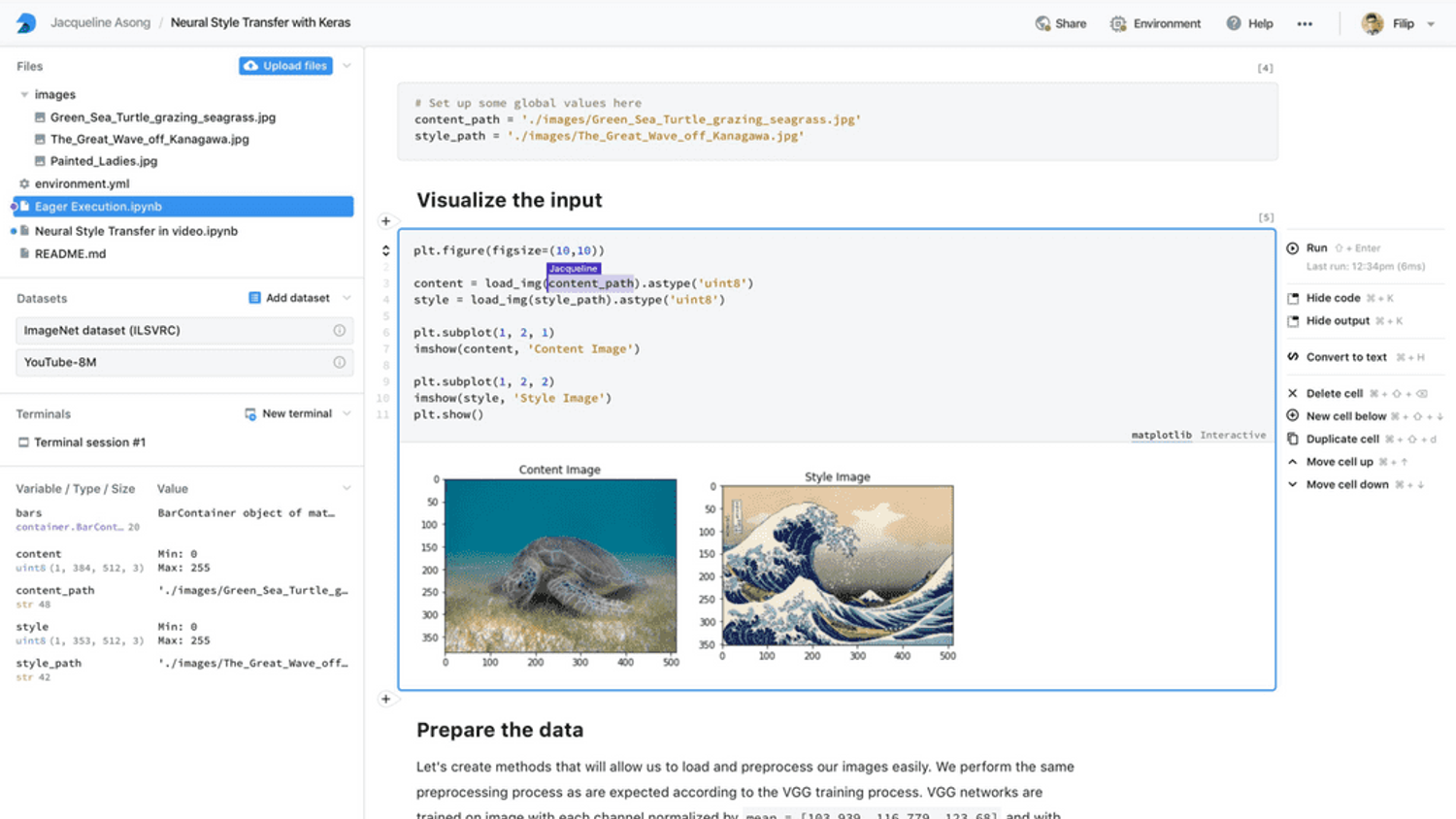
DeepNote, a small [team](https://www.deepnote.com/) based out of San
Fransisco, wants to take the place of Jupyter in your data science
workflows. I think they just might do it.
If you are a data scientist like me, you probably spend more time on engineering tasks rather than on actual research. Installing libraries, managing databases, keeping track of your experiments, debugging code, running out of memory... You get the idea.
- The "About" page of DeepNote
Jupyter notebooks are fantastic for data science prototyping. In a single environment, one can seamlessly perform exploratory analysis, visualize data, and build ML model prototypes.
That being said, not too long ago, most data scientists thought the Spyder IDE was the be-all-end-all. Even the greatest of tools eventually meet their demise, whether due to lack of fit, lack of ongoing support, or something else entirely.
Despite the wild popularity of Jupyter notebooks in the data science community, many have also pointed out some important weaknesses. The ability of new tools to resolve weaknesses in existing tools in a better or faster way usually enables their adoption over the status quo toolset(s). Let's take a look at some of the exciting differentiators DeepNote offers.
Real-Time Collaboration🔗
Google's suite of online collaboration tools (Docs, Sheets, Slides, etc) took a huge bite out of Microsoft Office's market share, without many added features. How did they do it? The main differentiator that left the world beating a path to their door was real-time collaboration.
By collaborating live with your co-workers in Google's suite, you no longer need to develop things in lock-step or hassle with merging differences. Furthermore, you always know where your collaborators are currently working, which makes dividing work even easier.
DeepNote brings this functionality right out of the box, enabling seamless collaboration in a shared computation environment. Indeed, this does bring about issues of the namespace changing around you. However, I imagine this is a much better problem to face than that of having to share Jupyter notebooks that need to be re-run to acquire a given state.
Real-time DeepNote collaboration in action (source)
Additionally, DeepNote provides various permission levels for each collaborator: view, execute, edit, admin, and owner. This allows a ton of control over operationalizing these notebooks.
First, imaging a teacher-student scenario. An instructor of an online course can walk through a shared notebook with the virtual classroom. The instructor possesses the admin/owner permission, while the rest of the classroom contains only view permissions.
As another example, consider a superior reviewing the work of a team member. The team member uses owner permissions to have complete control over the notebook. The superior uses edit permissions to provide inline feedback, but cannot execute any of the cells. By keeping execute permissions with only the team member, the superior cannot change (read: contaminate) the team member's namespace.
Variable Explorer🔗
One aspect of Spyder IDEs that I really missed in Jupyter notebooks (at least, without an extension/widget) is an easily-accessible namespace explorer. Sure, there are the who/whos magic commands. However, these do not really stand up to a comparison with Spyder's offering.
Once again, we have DeepNote filling the gap!
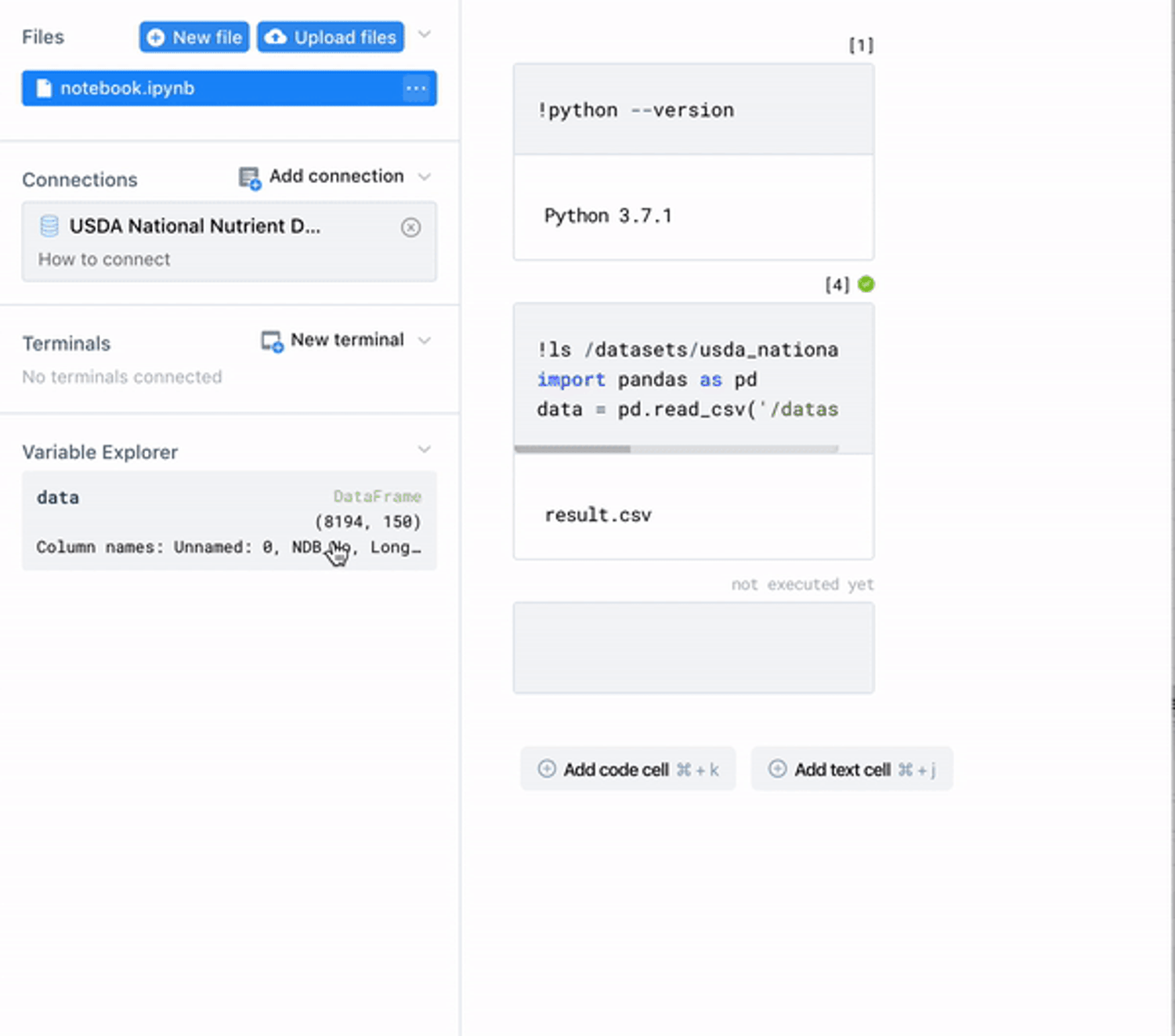
Aside from a solid variable explorer, no self-respecting notebook environment would be complete without a pretty pandas DataFrame display.

DeepNote Attaches to Cloud Hardware🔗
I'm sure you've heard of the rule of thumb (more of a complaint, really) that around 80% of data science is everything but the math and stats. In the cloud computing setting, this ratio becomes more like 90/10, with an extra 10% of time lost to putting the right compute horsepower underneath your notebooks.
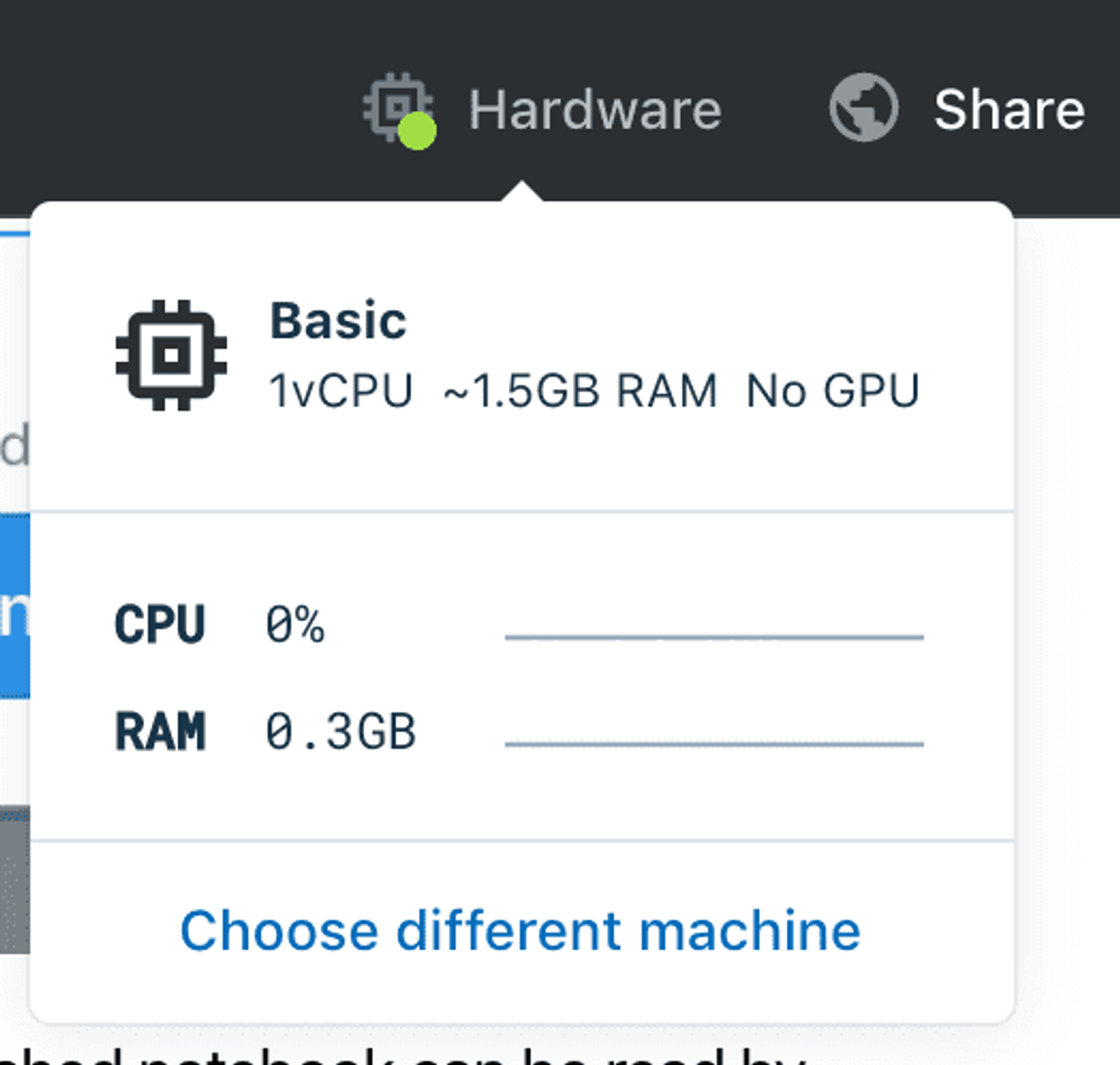
DeepNote understands your pain and provides seamless access to cloud-based hardware to fit your every need. By seamless, I mean you set everything up in the notebook interface itself! Oh, and by the way, they don't shut down your kernel unless it's actually idle.
Python Package Management🔗
Python has a great package management system. DeepNote realizes that and adheres to a requirements.txt file in its working directory. Even then, it's still easy to forget to install some dependencies upfront. When this happens, we don't realize the omission until we try to import and hit a failure!
To aid with this, DeepNote's notebooks will actively monitor your package imports, notifying you of dependencies missing from your declared requirements. Also, if the requirements file doesn't yet exist, it takes a best guess at what the file should be. Spoiler alert: the guess is usually correct.
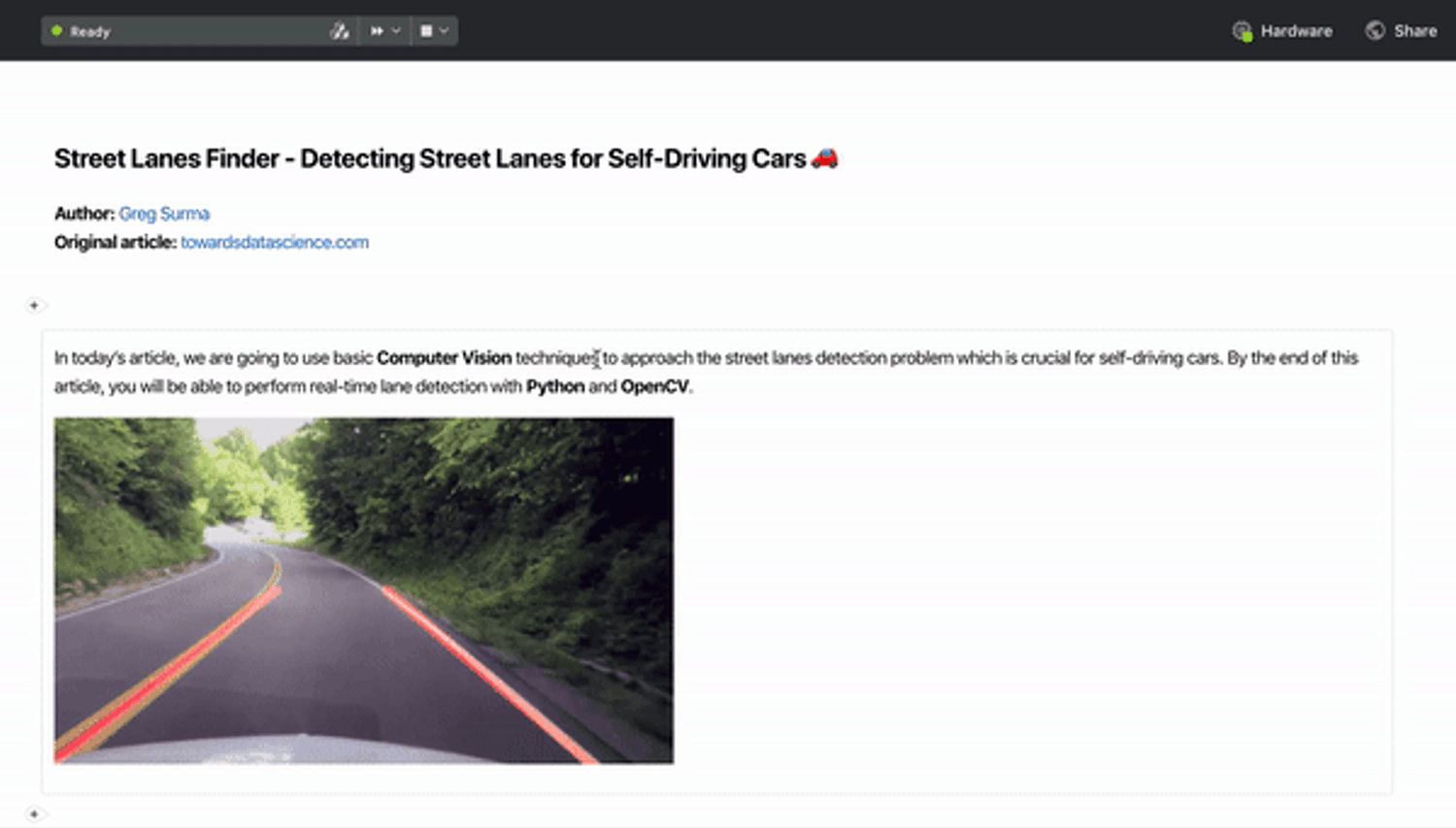
DeepNote Integrates With...A Lot🔗
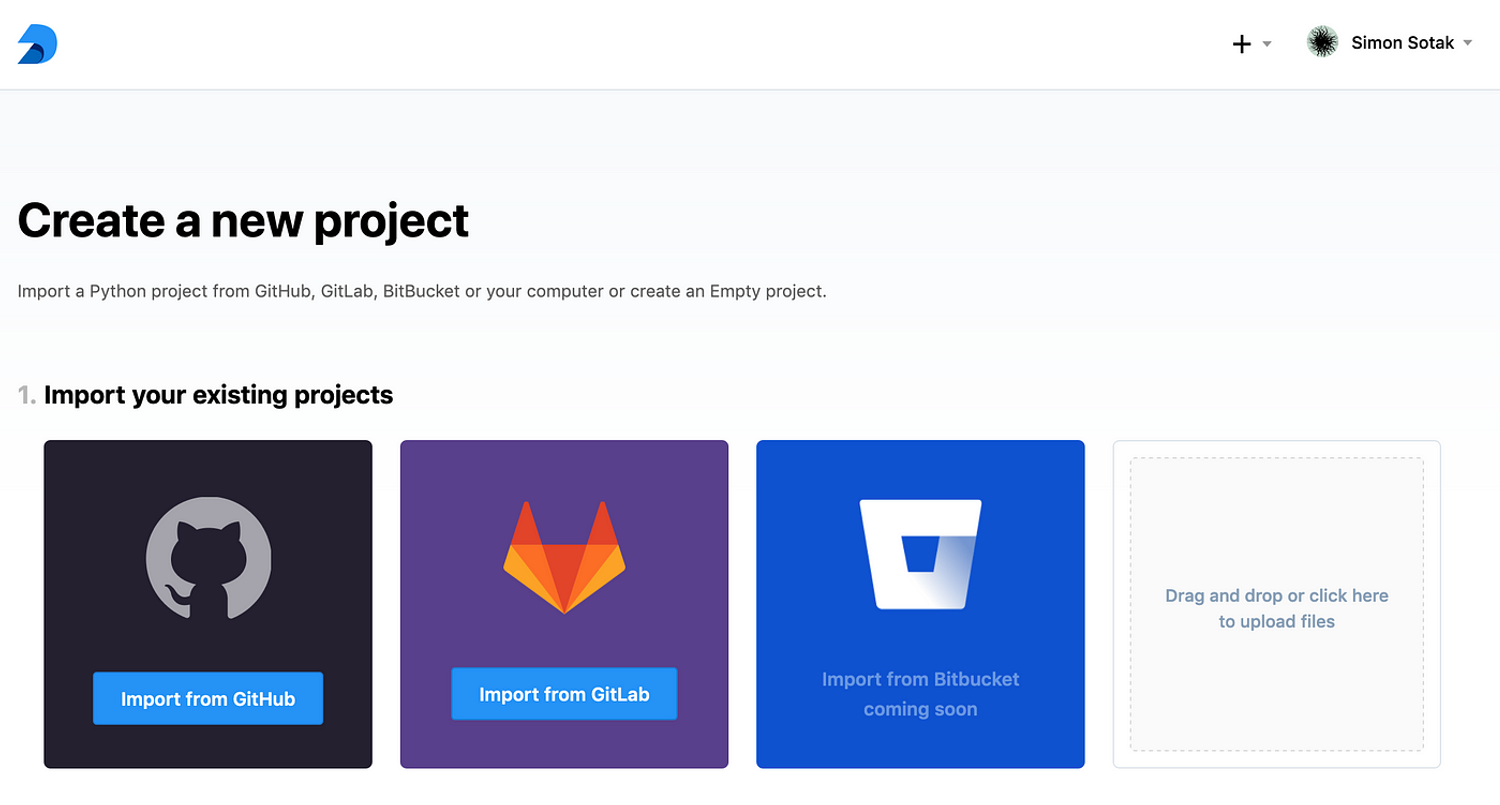
Lastly, DeepNote offers virtually all of the integrations you would expect to use. For keeping all of your notebook's organized, you can choose from various connections to source control repositories. This can be utilized during notebook creation as well as for writing back updates.
Source control aside, DeepNote notebooks also allow connections to cloud computing data stores, such as S3, GCS, and common database engines.
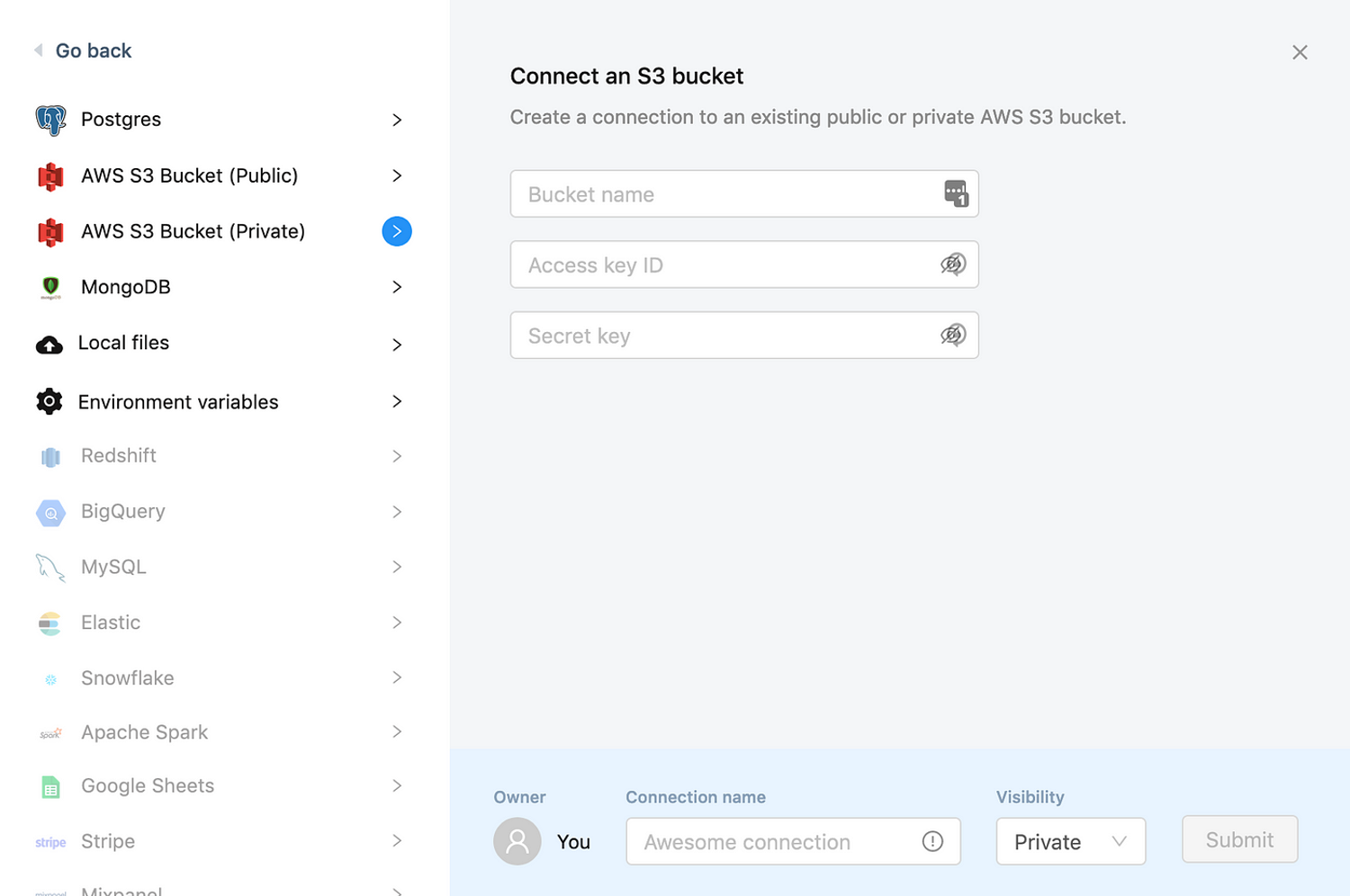
That's It For Now🔗
While DeepNote is not yet in the realm of truly killing off Jupyter, the trajectory certain exists. I'm eager to see how they continue! However, don't just take my word for it. Sign up for their early access program, just like I did. They responded within a week, and we've been casually discussing improvements since! Don't just complain about the status quo, be a part of improving it.
